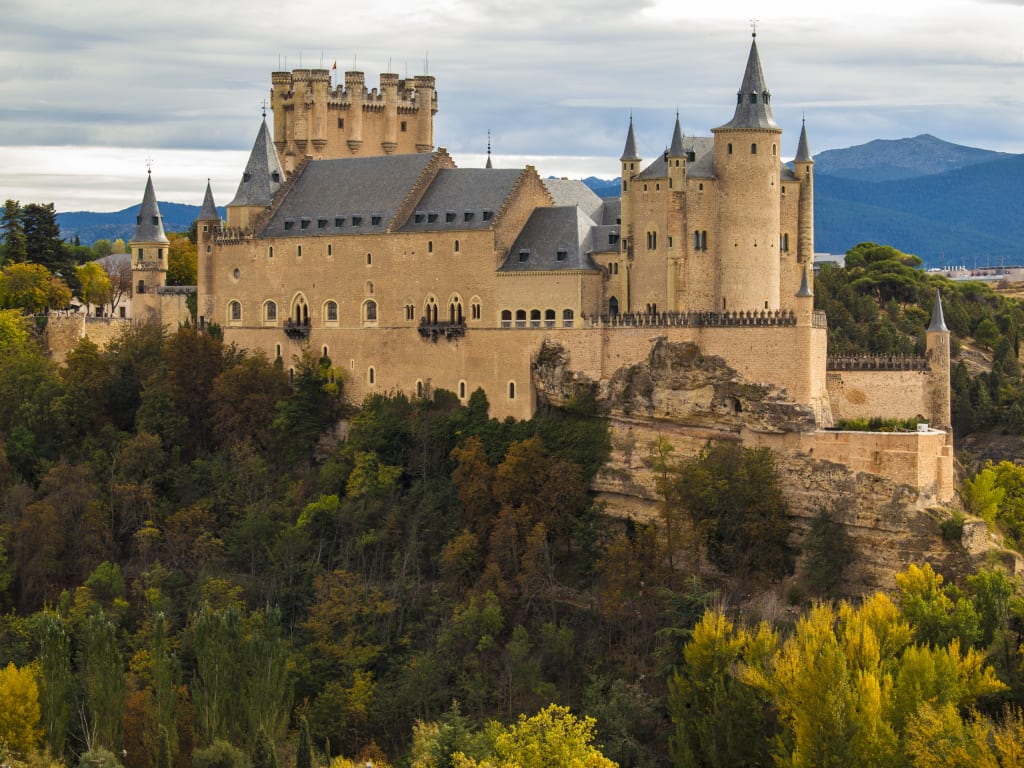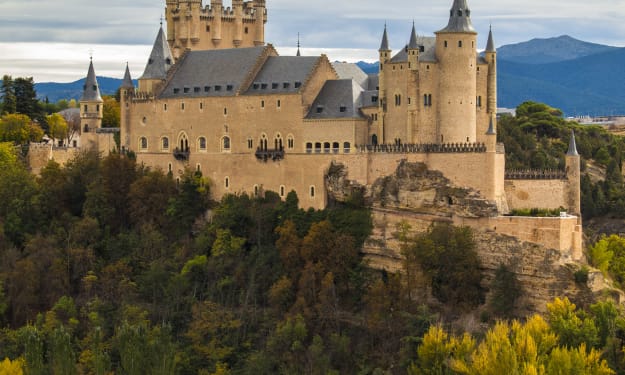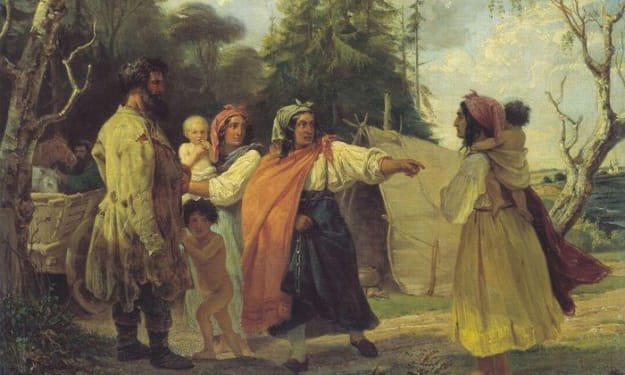An Uncrowned King Chapter 6 Part 4
A Royal Progress

On these occasions Cyril generally remained in the background, afraid of being caught laughing, as he told M. Drakovics, to the no small indignation of the Premier. Wright shared his objection to publicity, but for a different reason, feeling very uneasy in his mind as to the whole proceeding, now that he understood its import, and not at all sure that it was consistent with his duty to Queen Victoria to become a subject of Caerleon. There was an unhappy consciousness that something was wrong about his whole aspect, which would have afforded Cyril infinite amusement at any other time; but now, as from his commanding position on horseback he watched his brother’s close-cropped fair head towering above the unkempt locks of his new subjects, he was busy trying to enter into the feelings of the Thracians. Mothers brought their children to look at Caerleon, for good luck, as they said, “that their eyes might see the King’s face”; old men came tottering up to touch his coat or his riding-whip, and to call down blessings on his head. It was all too absurdly medieval, thought Cyril, as the office-bearers of the little towns came hurrying to take the oath of allegiance to their new King, and the peasants crowded round to entreat him to raise an army to conquer Scythia, in which every man of them would enlist. Why should they make all this fuss about an unimaginative Englishman, who merely looked uncomfortable when a more than usually fervent assurance of devotion was translated to him, and who could say nothing in return but that he would try to do his best for the people and the country? There could be no idea of Divine Right in this case, for how could such a sentiment consist with the popular election of the monarch? and as for loyalty, how could they feel loyalty to a man of whom they knew nothing but that he was an English prince, for whom M. Drakovics vouched as a suitable candidate for the throne? Cyril decided at last that they regarded Caerleon as the incarnation of the spirit of the late revolution, and as a bulwark against Scythia and the return of the House of Franza; but the Thracians themselves would probably have explained their delight much more simply by saying that they had a king at last, that he was young, good-looking, and fair-haired, and that he spoke courteously and looked like a soldier.
After three days spent in this kind of travelling the party came in sight of Bellaviste, and here they were met by what M. Drakovics called the “Sacred Band,” but which was known to military critics as the crack regiment of the Thracian army. It had been recruited on the classical principle, the men being divided into little groups of five or ten, all hailing from the same village, while in the same way each company represented a district, and each battalion a province.
“This regiment, your Majesty,” said M. Drakovics, as he presented the officers to Caerleon, “is the backbone of your army. Representative, from its composition, of the whole nation, it was the first to declare for freedom, and when it had done so, the doom of the House of Franza was sealed. I can assure you that the Sacred Band, to which, with your gracious permission, I will from to-day grant the honour of calling itself the Carlino Regiment, will prove to be the bulwark of your throne.”
The grant of its new name was received with great enthusiasm by the regiment, which was formed up for inspection, and when this ceremony was over, proceeded to escort the King into his capital. M. Drakovics, riding as usual beside his sovereign, pointed out the chief features of interest on the road. The city of Bellaviste itself was situated on a hill, which rose steeply from the river, but fell away gradually on the other sides. The highest portion of the hill was occupied by the palace, which with its gardens was surrounded by a strong wall capable of defence against a foe unprovided with artillery. Below this, on three sides, the houses of the town covered the slopes as far as the lowlands, while a broad rampart ran round the whole, set with towers at intervals.





Comments
There are no comments for this story
Be the first to respond and start the conversation.